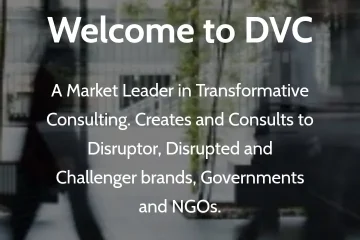Utilising Stage 1 of the LOAF GenAI 24 framework (Simulation and Planning ) we look at how the Hotel Industry can begin to analyse and integrate the disruptive technologies impacting their business models.
By employing Generative AI within the L.O.A.F process, organizations can leverage its capabilities to simulate various scenarios based on emerging technologies. This can aid in identifying potential disruptors, understanding their implications, and strategizing responses. The AI-driven simulations can provide nuanced insights into the convergence of technologies and their impact on market dynamics.
1. Define Objectives:
– Clearly outline objectives such as enhancing guest experiences, optimizing operations, and improving sustainability.
2. Identify Disruptive Technologies:
– List technologies like IoT for smart rooms, AI-driven chatbots, blockchain for secure transactions, and sustainable practices.
3. Data Gathering:
– Collect data on past hotel trends, customer preferences, and industry insights related to disruptive technologies in the hospitality sector.
4. Select Generative AI Platform:
– Choose a Generative AI platform like OpenAI’s GPT, capable of processing hotel industry data and generating realistic scenarios.
5. Training the Model:
– Train the Generative AI model on the gathered hotel-specific data to understand patterns and potential outcomes.
6. Input Scenarios:
– Define input scenarios, such as adopting IoT for personalized guest experiences or implementing blockchain for transparent booking processes.
7. Generate Scenarios:
– Use the trained Generative AI model to generate scenarios, exploring the impact of chosen disruptive technologies on hotel operations.
8. Evaluate and Refine:
– Assess feasibility, risks, and benefits of each scenario. Refine scenarios based on feedback, ensuring they align with hotel chain objectives.
9. Iterative Process:
– Iterate the process, adjusting input parameters and incorporating new data to enhance the accuracy of generated scenarios.
10. Scenario Analysis:
– Conduct a detailed analysis of scenarios, considering their impact on guest satisfaction, operational efficiency, and sustainability goals.
11. Decision-Making Support:
– Utilize generated scenarios for decision-making support, making informed choices in adopting technologies that align with hotel chain goals.
12. Continuous Monitoring:
– Continuously monitor hotel industry trends and technological advancements, updating the Generative AI model to keep scenarios relevant and aligned with the evolving landscape.
By applying this process, hotel chains can proactively assess and prepare for disruptive technologies, ensuring they stay ahead in providing enhanced guest experiences and operational efficiencies
About the author
DVC Consultants: Exploring Unknown Unknowns since 1995. Quentin Anderson is Executive Chairman, DVC Consultants, CEO and Co-Founder of BankTotal, and Co-Founder of the social media platform Mifamilias.com. He has decades of experience in advising companies, and for 18 years was a CEO of brand development companies in the WPP group.
Thought Leadership- Cogitare
Cogitare – Latin for “To Think” – is the collective name for DVC Consultants thoughts, insights and perspectives on a broad and eclectic number of subjects. From Brexit to Global Poverty, Islamic Banking to Subsistence Agriculture, Disruptive Technologies to The World Bank. It reflects the wide range of sectors and issues we consult on. We hope you enjoy reading them.
quentin@agencio.ai
q.anderson@dvcconsultants.com.




0 Comments